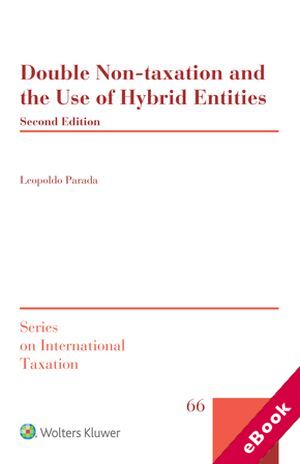
The device(s) you use to access the eBook content must be authorized with an Adobe ID before you download the product otherwise it will fail to register correctly.
For further information see https://www.wildy.com/ebook-formats
Once the order is confirmed an automated e-mail will be sent to you to allow you to download the eBook.
All eBooks are supplied firm sale and cannot be returned. If you believe there is a fault with your eBook then contact us on ebooks@wildy.com and we will help in resolving the issue. This does not affect your statutory rights.
Double Non-taxation and the Use of Hybrid Entities, currently in its second edition, is the first systematic in-depth analysis of the OECD Base Erosion and Profit Shifting (BEPS) Action Plan 2 and hybrid entities, a timely book providing a critical review of the approach adopted by the OECD and proposing a deeply informed alternative method to deal with the problem of hybrid entity mismatches. Double non-taxation and hybrid entities have gained increasing importance in a context where transformations in the tax world have led to international commitments materialised in the OECD BEPS.
What’s in this book:
The author analyses the interaction between the double non-taxation outcome and the use of hybrid entities in an approach not strictly linked to any specific tax jurisdiction. To this end, the analysis includes case studies and examples from various jurisdictions, emphasising the international tax context and the application of tax treaties.
This edition covers the following seminal matters:
Detailed comparisons between the author’s proposal and other existing rules shed light on common points and deviations.
How this will help you:
Due to its nonpareil clarification of the issues, this book will prove to be of immeasurable value to practitioners, tax authorities, policymakers and academics concerned with international tax law. In addition, as an authoritative guide that promises to reorient the discussion to what really matters in the debate regarding hybrid entity mismatches, this analysis furnishes solutions applicable to a generality of cases globally and, therefore, hugely promotes the urgent quest for alternative views.